From the Second International a progression, foreseen beforehand, by a number of revolutionary movements, was taking place. Two related branches that came about were Nazism and Political Zionism, bedfellows and each destructive of their own people and others.
The Second International
(Social-Democracy)
1880 — 1917
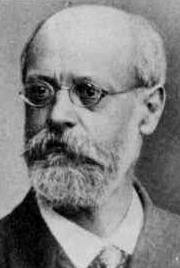 IntroductionIn 1880, the German Social Democratic Party supported the call of its Belgian comrades, to call an international socialist congress in 1881. The little town of Chur was chosen and the Belgian socialists, the French Parti Ouvrier, the German social democracy, and the Swiss social democracy, participated in the preparations for the congress which would lead to the founding of the Socialist International. Unlike the First, the Socialist International was made up of political parties with properly elected leaderships, political programs and membership bases in each country. The national sections of the International built trade unions, contested elections, and were deeply involved in the life of the working class in each country. The outbreak of the Great War in 1914 and the national and revolutionary crises which the War engendered however, threw the International into crisis. A group of Social-Democrats, minorities within their own parties, met at Zimmerwald in 1915 to try to work out a joint platform of opposition to the slaughter taking place around them. The Zimmerwald Conference failed to unite all the Social Democrats or end the War, but did bring together a Left wing which supported the Russian Revolution and laid the basis for the Third (Communist) International.
|
Formation of the InternationalOctober 1881 (Chur) Founding Conference of the Second International. Delegates included: Wilhelm Liebknecht (Germany); McGuire, General Secretary of the United Brotherhood of Carpenters (Socialist Labor Party of North America); Louis Bertrand (The Belgian Socialist Party); J. Joffrin and Benoît Malon (The French Parti Ouvrier); J. P. Becker and Solari for French-speaking Switzerland, and Conzetti, Herter, Lenbert, and Schwartz for German-speaking Switzerland; Rachow (German communist, London); Varinski and Limonowski for various Polish socialist groups, and Paul Axelrod (Russia), Ferenezi Siula (Budapest). The Conference did not succeed in bringing the parties into a new International, but called for the drafting of a joint socialist manifesto to be submitted to the next international congress, to be organised by the Parti Ouvrier in Paris in 1886. 1886 (Paris) International Labour Conference, showed progress towards a new International with socialist parties in Italy, Spain, Holland, Belgium, Great Britain, the Scandinavian countries, France, the United States, etc. July 1889 (Paris) International Socialist Congress, attended by delegates from 20 countries, founded the new Socialist International, formally adopting the principles of the International Workingmen's Association founded in London in 1864. May Day was declared as an international working-class holiday. International Socialist Congresses 2. 1891 (Brussels) 3. 1893 (Zürich) Engels was elected honorary president of International Socialist Congress, but died in 1895. The Congress established the International Metalworkers Federation, uniting metalworkers across the world to this day. 4. 1896 (London) affirmed right of nations to self-determination and opposition to colonialism. 5. September 1900 (Paris) Established a standing International Socialist Bureau composed of representatives of the socialist parties of all countries, its secretariat to be in Brussels. At this Congress, there was a split within the 28-strong Russian delegation. Lenin cast his vote for Plekhanov as the Russian delegate to the International, against Krichevsky, one of the editors of Rabocheye Dyelo. In 1903, the Russian party split between Bolsheviks and Mensheviks. 6. 1904 (Amsterdam) The Industrial Workers of the World (IWW) was founded in Chicago in June 1905, and over the next few years, the Social Democrats were active in a struggle against Anarcho-Syndicalism within the IWW. See the Report of the Australian Socialist League to the International Socialist Congress at Amsterdam, and 7. August 1907 (Stuttgart), there were 884 delegates from 25 nations including Argentina, Australia, Austria, Belgium, Bulgaria, Denmark, England, Germany, Italy, India, Japan, Norway, Poland, Russia, the USA and one delegate from South Africa. The First International Conference of Socialist Women was held just prior to the opening of the Congress
The Fourth convention of the IWW in 1908 resulted in a split between “political actionists”, led by Daniel DeLeon of the SLP, and “direct actionists”, led by Vincent St. John and J.H. Walsh. DeLeon set up a rival “Detroit” IWW in opposition to the “Chicago” IWW who were opposed to participation in Parliament. 8. August 1910 (Copenhagen). Second International Conference of Socialist Women held prior to opening of Congress, set International Women's Day for March 8 every year. November 1912 Extraordinary Congress (Basel) - see Manifesto. The final session of the International Socialist Bureau was held at Brussels on July 29, 1914 and “resolved unanimously that it shall be the duty of the workers of all nations concerned not only to continue but to further intensify their demonstrations against the war, for peace, and for the settlement of the Austro-Serbian conflict by international arbitration, ...” Imperialism and Arbitration Courts, Report by Hugo Haase to the International Socialist Congress of Vienna, August 1914. 1915 September (Zimmerwald, near Berne, Switzerland) organised opposition to the War. 1916 April (Kienthal) follow-up to Zimmerwald Conference. 1917 July - August (Stockholm) did not convene due to delegates being prevented from attending. Final meeting of Zimmerwald group at Stockholm The Social Democratic Party of GermanyThe defeat of the Paris Commune in 1871 plunged Europe into a period of reaction, leading to the disintegration of the First International by 1873. The reconstruction of the international socialist movement began in Gotha in 1875. The German Socialists were the founding and most powerful section of Social-Democracy throughout the period of its existence. The Socialist Workers' Party of Germany was founded in May 1875 at Gotha, uniting Liebknecht and Bebel's Social-Democratic Workers' Party and the Lassallean General German Workers' Union. See Marx's Critique of the Gotha Programme and Engels' 1891 Foreword to the Critique. |
| Wilhelm Liebknecht |
| August Bebel |
| Eduard Bernstein |
| Karl Kautsky |
The Spartacists Franz Mehring |
| |
| Rosa Luxemburg was a leader of both the German and Polish Social Democrats, an electrifying speaker who always stood on the left wing of social democracy. She was critical of Lenin's centralised methods of organisation (See Russian Social-democracy) and was a foremost advocate of the mass strike as opposed to parliamentary activity (See The Mass Strike). She spent the War inside prison, and was released only in time to take her place at the head of the German Revolution and to be arrested by her erstwhile Social-Democratic comrades, and murdered in January 1919. |
| With Rosa Luxemburg, Liebknecht was leader of the “International Group” and later founded the Spartacist League and was the only Reichstag Deputy to oppose war credits in the Reichstag in 1914. Drafted during the war, he was imprisoned in May 1916 for anti-war activity. Released in November 1918, Liebknecht was a leader of the failed Berlin uprising in January 1919 and murdered on January 15th 1919, along with his life-long comrade Rosa Luxemburg. |
Other Social-democratic Parties in Europe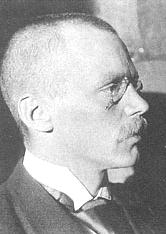 Herman Gorter (1864-1927) Dutch poet who opposed the pro-War stance of the Dutch Social-Democrats and later became a "left-wing communist", conducting a polemic against Lenin's book of that name. See his Open Letter to Lenin. |
 Anton Pannekoek (1873-1960) The Dutch astronomer Anton Pannekoek was active in the German Social Democratic Party while living in Germany before the War and contributed to Die Neue Zeit. The leader of the Social Democrats in the Netherlands, after the Russian Revolution, Pannekoek stayed aloof from both the Comintern and the Socialist Parties, taking a syndicalist direction. See Party and Class. |
The French Parti Ouvrier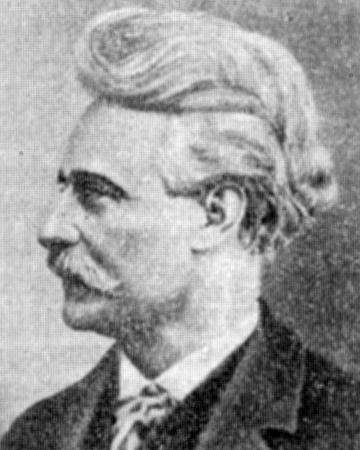 Paul Lafargue After the fall of the Paris Commune Paul and Laura fled to Spain but later settled in London. Lafargue was an influential speaker and writer, including works on ethical aspects of socialism. The couple commited suicide together in 1911. See Paul Lafargue Archive. |
| Jules Guesde 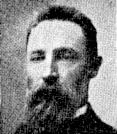 In December 1920 the French Socialist Party joined the Comintern. Garbriel Deville: one of the theoreticians of the French Workers Party (POF) of Guesde and as such introduced Marxism into France. |
Swedish Social-Democracy August Palm Hjalmar Branting |
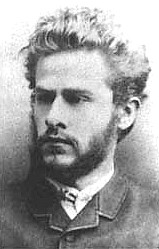 Poland Leo Jogiches |
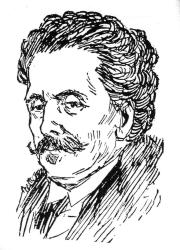 Italian Socialist Party Antonio Labriola (1843-1904) 
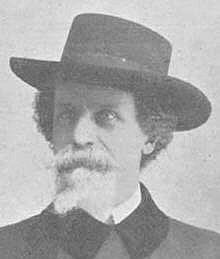 Enrico Ferri (1856-1929), criminologist, later joined the Fascists. |
Russian Social-DemocracyThe Russian Social Democratic Labour Party grew out of the Emancipation of Labour Group founded in 1878 by Plekhanov, Vera Zasluich, Pavel Axelrod and others. The Russian Social Democratic Labour PartyThe R.S.D.L.P. was founded in 1901, but at its Second Congress into two factions known as the “Bolsheviks” and the “Mensheviks”. These two factions still operated as parts of a single party as late as 1912. G V Plekhanov Plekhanov was the “father of Russian Marxism”, and up to 1903 Lenin and Plekhanov were allies in the struggle against Bernstein's “evolutionary socialism.” Even after Lenin split with Plekhanov, Plekhanov was held in high regard. However, he did not foresee the possibility of the working class seizing power without Russia first passing through a period of democratic capitalism, and opposed the October Revolution. |
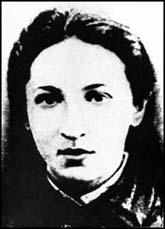 Vera Zasulich (1851-1919) Joined the Narodniks as a youth, but after emigrating in 1880 joined with Plekhanov in the Emancipation of Labour Group. Zasulich translated a number of Marx's works into Russian and with Lenin and Plekhanov as an editor of Iskra. Zasulich was a Menshevik from 1903. Pavel Axelrod (1850-1928) Influenced by the writings of Bakunin, in 1877 he joined Land and Liberty. When this group established the terrorist Narodnya Volya, he joined instead with Plekhanov in the Emancipation of Labour Group. Axelrod was a Menshevik from 1903. 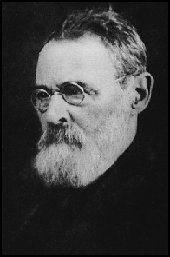 |
| V I Lenin Lenin's Bolshevik faction was the centre of opposition to the War at the Zimmerwald Conference. The February Revolution, which brought a social-democratic Provisional Government to power, which continued Russia's participation in the First World War. Returning from exile in April 1917, Lenin called for the overthrow of the Kerensky government and the ending of the War, and led the successful Russian Revolution of October 1917. Lenin died just when power had been secured after the Wars of Intervention. |
| See The Bolsheviks Subject Archive. The Bolsheviks, led by Lenin and Zinoviev, were the main force in the Zimmerwald-Left opposition to the First World War, laying the basis for the Communist International formed in 1918. Leon Trotsky Trotsky joined the Bolshevik Party in 1917 and was elected to its Central Committee and led the Military Revolutionary Committee which organised the October Revolution. |
Britain Henry Hyndman Hyndman's domineering style, adventurous tactics and questionable relations with the Tories weakened the SDF. In December 1884 William Morris and Eleanor Marx left to form the Socialist League. H. H. Champion, Tom Mann and John Burns also left. In February 1900 the SDF joined with the Independent Labour Party of Keir Hardie and Ramsay MacDonald, the Fabian Society and several trade union leaders to form the Labour Representation Committee, later to become the Labour Party. Hyndman had very little influence and in August 1901 the SDF disaffiliated from the Labour Party and Hyndman established the British Socialist Party (BSP). Hyndman supported Britain's part in the War and left to form the National Socialist Party. In 1885, Eleanor Marx, William Morris, Ernest Belfort Bax, Edward Aveling and others left Hyndman's SDF to found the Socialist League and whole branches, such as those in East London, Hammersmith and Leeds, joined the new organisation. William Morris (1834-1896) A member of Hyndman's Social Democraic Federation, and of the Socialist League, where he sided with the Anarchists against those oriented towards Parliament, and resigned from the SL in 1896. The renowned artist and writer continued his work as part of the Hammersmith Socialist Society. |
| See A Short Account of the Paris Commune of 1871, by Bax, Morris and Dave. |
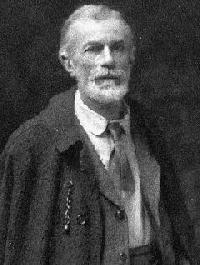 Edward Carpenter and Walter Crane were also members of the Socialist League, which reached a peak of 10,000 members in 1895, but came under anarchist influence, declined and was wound up in 1901. |
was editor of Justice and co-author with Bax of the New Catechism of Socialism, 1903/09. See Jean Longuet Archive. Edward Aveling (1849-1898) Londoner who married Eleanor Marx and made the first English translation of Capital; died soon afer Tussy's suicide. See also John Round’s attack on the socialists: The Coming Terror, 1881. See Review of “Forerunners of Socialism” by Henry W Macrosty, 1895.
|
| The Independent Labour Party What Happened at Leeds, Council of Workers and Soldiers Delegates, 1917. The United StatesSee Early American Marxism Archive. 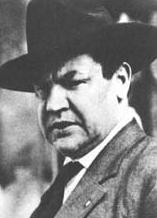 |
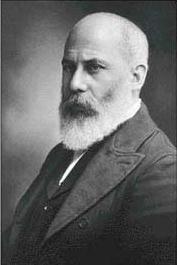 Daniel De Leon |
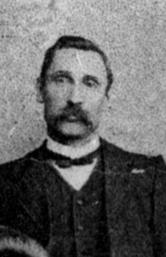
AustraliaBoth Hyndman's S.D.F. and later DeLeon's Socialist Labor Party found their reflections in Australia, but it was the visit of Tom Mann to the colony which led to the development of a Marxist Party, the Victorian Socialist Party. 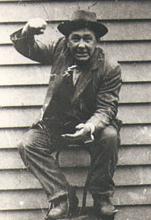 |
from: http://www.marxists.org/history/international/social-democracy/index.htm
All copyrighted sources are quoted and used for comment and education in accord with the nonprofit provisions of: Title 17 U.S.C., Section 107. These sites are in accordance with Title 17 U.S.C., Section 107 and are protected under: The First Amendment Congress shall make no law respecting an establishment of religion, or prohibiting the free exercise thereof; or abridging the freedom of speech, ….
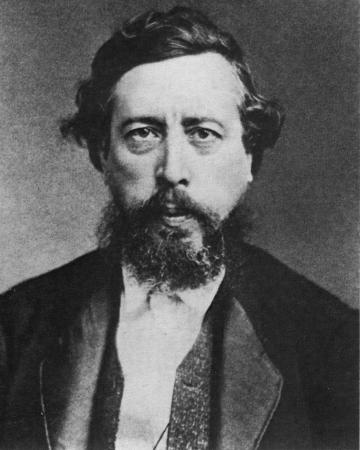 (1826-1900) After participating in the 1848 revolution, fled to Switzerland, then to England, returning to Germany in 1862. Liebknecht and Bebel were the first deputies of a left-wing party to be elected to the North German Reichstag. In Eisenach in 1869, Liebknecht and Bebel founded the Social-Democratic Workers' Party, and in 1891 were co-founders of the Social Democratic Party. Liebknecht was a member of the German Reichstag from 1874 until his death in 1900. See the
(1826-1900) After participating in the 1848 revolution, fled to Switzerland, then to England, returning to Germany in 1862. Liebknecht and Bebel were the first deputies of a left-wing party to be elected to the North German Reichstag. In Eisenach in 1869, Liebknecht and Bebel founded the Social-Democratic Workers' Party, and in 1891 were co-founders of the Social Democratic Party. Liebknecht was a member of the German Reichstag from 1874 until his death in 1900. See the 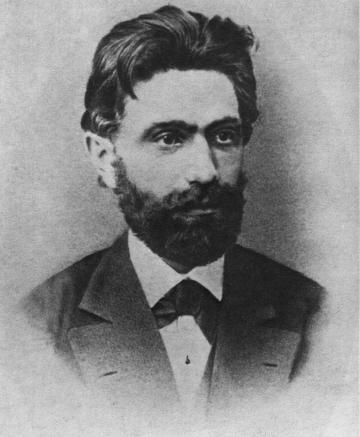 (1840-1913) Bebel had trained as a cabinet maker, and was introduced to socialist theory by the Lassallean German Workers' Association founded in 1863. In 1872, Bebel and Liebknecht were imprisoned for two years for their opposition to
(1840-1913) Bebel had trained as a cabinet maker, and was introduced to socialist theory by the Lassallean German Workers' Association founded in 1863. In 1872, Bebel and Liebknecht were imprisoned for two years for their opposition to  (1850-1932) Left Germany during the anti-Socialist laws to produce the Sozial Demokrat from Switzerland. Lived in London from 1888 to 1900 where he was close to Engels until Engels' death in 1895, and was named his literary executor. From 1896, Bernstein became an advocate of reformism, coining the aphorism: “The movement is everything, the final goal nothing”. See
(1850-1932) Left Germany during the anti-Socialist laws to produce the Sozial Demokrat from Switzerland. Lived in London from 1888 to 1900 where he was close to Engels until Engels' death in 1895, and was named his literary executor. From 1896, Bernstein became an advocate of reformism, coining the aphorism: “The movement is everything, the final goal nothing”. See 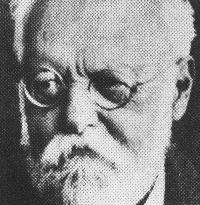 (1845-1938) In 1880, Kautsky joined Bernstein in Zurich who smuggled socialist material into Germany in defiance of the Anti-Socialist Laws. Bernstein introduced Kautsky to Marxism and Kautsky visited Marx and Engels in England. He founded Neue Zeit in Stuttgart in 1883 and was its editor until 1917. In this position he became the most influential leader of Social-Democracy and authority on Marxism until the Russian Revolution. In 1891, Kautsky's
(1845-1938) In 1880, Kautsky joined Bernstein in Zurich who smuggled socialist material into Germany in defiance of the Anti-Socialist Laws. Bernstein introduced Kautsky to Marxism and Kautsky visited Marx and Engels in England. He founded Neue Zeit in Stuttgart in 1883 and was its editor until 1917. In this position he became the most influential leader of Social-Democracy and authority on Marxism until the Russian Revolution. In 1891, Kautsky's 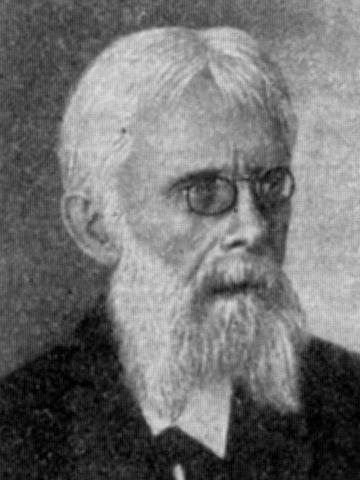 (1846-1919) Literary critic, writer and historian, a leader of the Left-wing of the German Social Democrats and later member of the
(1846-1919) Literary critic, writer and historian, a leader of the Left-wing of the German Social Democrats and later member of the 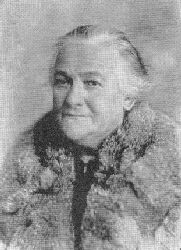
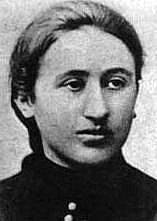
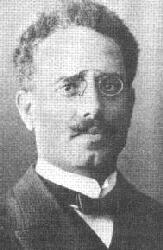
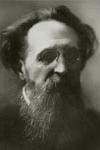 (1845-1922) Publisher of L'Égalité, leader of the Marxist wing of the French workers' movement. In 1879, together with Lafargue, he founded the French Workers' Party [Parti ouvrier]. In the 1880's and 90's Guesde led the fight against the
(1845-1922) Publisher of L'Égalité, leader of the Marxist wing of the French workers' movement. In 1879, together with Lafargue, he founded the French Workers' Party [Parti ouvrier]. In the 1880's and 90's Guesde led the fight against the 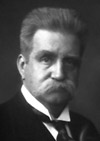 See
See 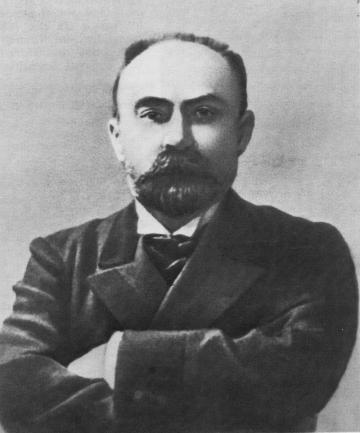 (1856-1918) Left
(1856-1918) Left 
 (1870-1924) Left Russia to meet with Plekhanov, returning to Russia in order to unite all the revolutionary circles in Russia in a single Party – the R.S.D.L.P.. However, Lenin's conception at this time was for a party of “professional revolutionaries”, rather than the amateurish revolutinary circles or loose labour parties of Europe. Over this issue, Lenin split with all the older generation of Russian Marxists.
(1870-1924) Left Russia to meet with Plekhanov, returning to Russia in order to unite all the revolutionary circles in Russia in a single Party – the R.S.D.L.P.. However, Lenin's conception at this time was for a party of “professional revolutionaries”, rather than the amateurish revolutinary circles or loose labour parties of Europe. Over this issue, Lenin split with all the older generation of Russian Marxists.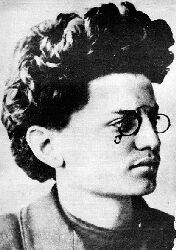 (1879-1940) Worked with Lenin on Iskra in 1902 but broke with Lenin after the
(1879-1940) Worked with Lenin on Iskra in 1902 but broke with Lenin after the 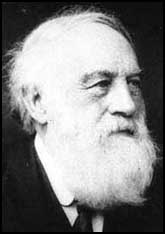 (1842-1922) While on holiday in the United States in 1881, Hyndman read a copy of Capital decided to form a Marxist political group when he arrived back in England. The
(1842-1922) While on holiday in the United States in 1881, Hyndman read a copy of Capital decided to form a Marxist political group when he arrived back in England. The 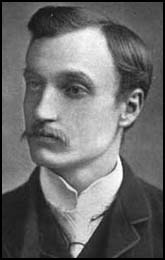
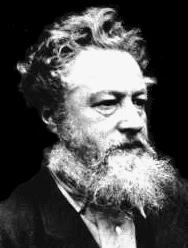
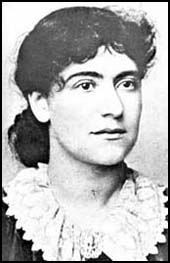
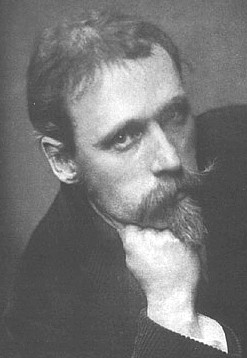
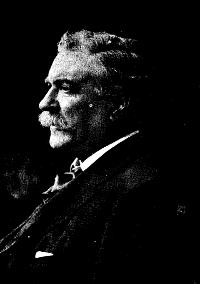
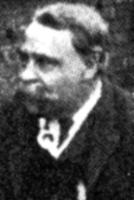
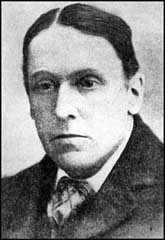
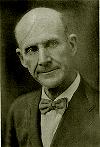
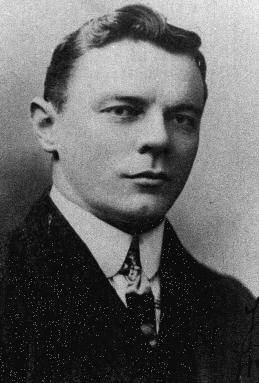 Marxists of the early years of the 20th century included Frank Hyett, John Curtin, Maurice Blackburn, Frank Anstey,
Marxists of the early years of the 20th century included Frank Hyett, John Curtin, Maurice Blackburn, Frank Anstey,
No comments:
Post a Comment
Note: Only a member of this blog may post a comment.